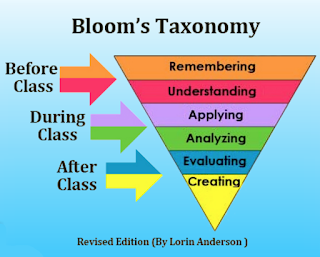Trees and Trailblazers; Weeds and Valleys
I am a hopeless "weeds" person -- I get lost in them, early and often. By weeds I mean the details instead of the big picture, the what instead of the why, the tactical instead of the strategy. I love to solve problems, even before I consider if it is the right problem to be solving! I have to consciously work to see the forest for the trees.
I also have a penchant for speed. I like to complete tasks, check things off lists and get 'er done. I can be impatient and short-sighted and outcome oriented. I quickly forget about process and reflection and the "long game."
These attributes can make me very productive and successful, but they also handicap creative and innovative work. That is why I am so thankful for MITx: Launching Innovation in Schools online course. I have only scratched the surface of the online materials and am already reminded to zoom out and constantly consider the systems of change, not just the change itself.
Take this screen shot of MIT instructor Justin Reich, outlining the cycle of change in schools. It so clearly reminds me that change is a cycle of experiment and experience, driven by teachers. That's the pink. The number one influence on teachers' pedagogical practice is other teachers, so as an administrator I need to forget about "dictating from above" and instead spend time nurturing the trailblazing experimenters, magnify their successes and clarify shared instructional language and vision. That is the blue piece.

This course provides me important and constant reminders that change is not a destination. It is not linear and it is not solitary. There is no right path or right answer. You simply need to "get started and stay open." And keep on keeping on. We will summit peaks, but there will be valleys, lots of them, and I need to keep reflection, iteration and process in mind as we travel through those low points.
You can check out the entire course video here.
I also liked this piece on how you might go about changing school culture, the stickiest of problems. As Peter Drucker says, "Culture eats strategy for breakfast!"
http://www.ascd.org/publications/educational-leadership/dec06/vol64/num04/How-Do-You-Change-School-Culture%C2%A2.aspx
I also have a penchant for speed. I like to complete tasks, check things off lists and get 'er done. I can be impatient and short-sighted and outcome oriented. I quickly forget about process and reflection and the "long game."
These attributes can make me very productive and successful, but they also handicap creative and innovative work. That is why I am so thankful for MITx: Launching Innovation in Schools online course. I have only scratched the surface of the online materials and am already reminded to zoom out and constantly consider the systems of change, not just the change itself.
Take this screen shot of MIT instructor Justin Reich, outlining the cycle of change in schools. It so clearly reminds me that change is a cycle of experiment and experience, driven by teachers. That's the pink. The number one influence on teachers' pedagogical practice is other teachers, so as an administrator I need to forget about "dictating from above" and instead spend time nurturing the trailblazing experimenters, magnify their successes and clarify shared instructional language and vision. That is the blue piece.

This course provides me important and constant reminders that change is not a destination. It is not linear and it is not solitary. There is no right path or right answer. You simply need to "get started and stay open." And keep on keeping on. We will summit peaks, but there will be valleys, lots of them, and I need to keep reflection, iteration and process in mind as we travel through those low points.
You can check out the entire course video here.
I also liked this piece on how you might go about changing school culture, the stickiest of problems. As Peter Drucker says, "Culture eats strategy for breakfast!"
http://www.ascd.org/publications/educational-leadership/dec06/vol64/num04/How-Do-You-Change-School-Culture%C2%A2.aspx

Comments
Post a Comment